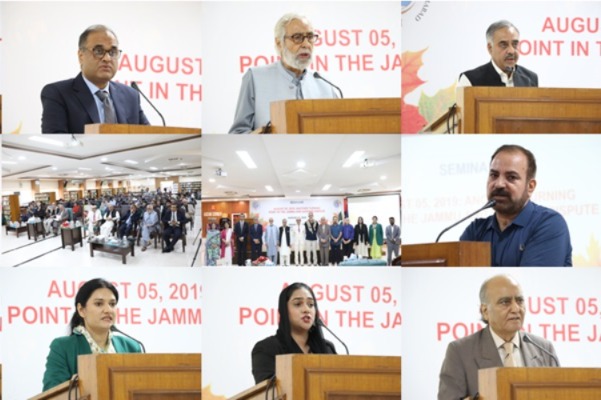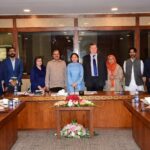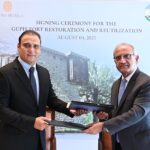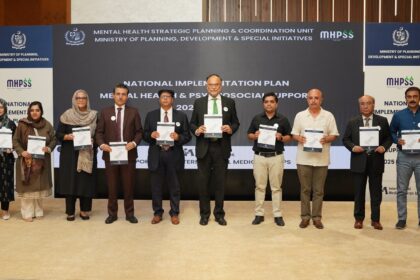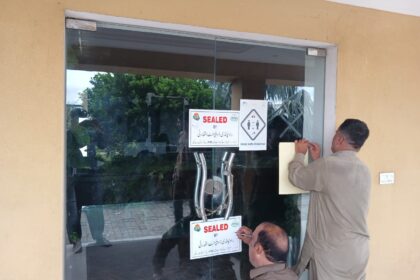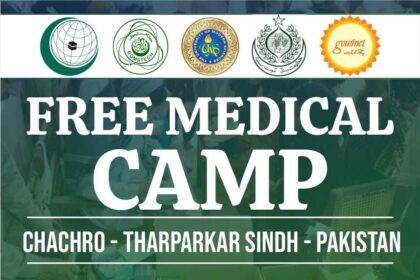The Institute of Strategic Studies Islamabad (ISSI) marked Youm-e-Istehsal with a seminar focusing on the ongoing Jammu and Kashmir dispute, emphasizing the impact of India’s actions since August 5, 2019, and calling for renewed international attention and support for the Kashmiri people. The event, organized by the India Study Centre at ISSI, brought together diplomats, academics, and human rights activists to discuss the situation in Indian-administered Jammu and Kashmir following the revocation of its special status.
Ambassador Sohail Mahmood, Director General of ISSI, highlighted that the region has become one of the most heavily militarized zones in the world. He warned that the scale of human rights violations has reached alarming levels, describing them as “crimes against humanity” and accusing India of collectively punishing entire communities. According to Ambassador Mahmood, despite widespread repression, Kashmiris remain determined in their fight for self-determination. He accused India of attempting to alter the region’s demographics, comparing these efforts to a “settler-colonial project” similar to the Israeli model, and of trying to diminish the rights and distinct identity of Kashmiris.
He further stated that India regularly labels the indigenous Kashmiri struggle as terrorism and accuses Pakistan of cross-border involvement, using incidents such as the recent Pahalgam attack to justify both military escalation and diplomatic pressure. Mahmood accused the Indian government, led by the BJP, of a lack of interest in regional stability, and highlighted the need for international cooperation to resolve the dispute. He stressed that stability in South Asia hinges on a just and peaceful resolution of the Kashmir conflict, in line with United Nations Security Council resolutions.
Ambassador Masood Khan, former President of Azad Jammu and Kashmir and chief guest at the seminar, warned that the unresolved Kashmir issue heightens the risk of conflict in South Asia. He pointed out that ongoing tensions, including a recent Indo-Pak conflict, have underscored the centrality of Kashmir to regional peace. Khan highlighted the importance of raising global awareness about the situation through the efforts of the Pakistani and Kashmiri diaspora and called for deeper research into India’s political landscape. He praised Pakistan’s efforts at international forums but urged for stronger engagement with global institutions and vigilance regarding any future changes in Jammu and Kashmir’s political status.
Ambassador Imran Ahmed Siddiqui, Additional Secretary at Pakistan’s Ministry of Foreign Affairs, criticized India’s post-2019 measures in Kashmir as violations of international law, humanitarian law, and the Geneva Conventions. He pointed to the detention of Kashmiri political leaders and restrictions on political activity as efforts to suppress genuine representation. Siddiqui reiterated Pakistan’s unequivocal support for the Kashmiri right to self-determination, calling on the international community to address human rights abuses and help resolve the dispute according to the wishes of the Kashmiri people.
Other speakers provided historical context to the Kashmiri struggle and described the administrative and constitutional changes implemented by India as attempts to disenfranchise Kashmiri Muslims and erase their identity. Human rights activist Naila Altaf Kayani spoke about the cultural and linguistic suppression of Kashmiris, stressing the urgency of raising awareness to resist systematic erasure. Legal experts at the seminar underscored that international law does not permit unilateral changes to Kashmir’s status without a UN-supervised plebiscite.
The seminar concluded with a call for increased international engagement and research, reinforcing the need to break the global silence on Kashmir and supporting efforts toward a peaceful and just resolution of the conflict.




